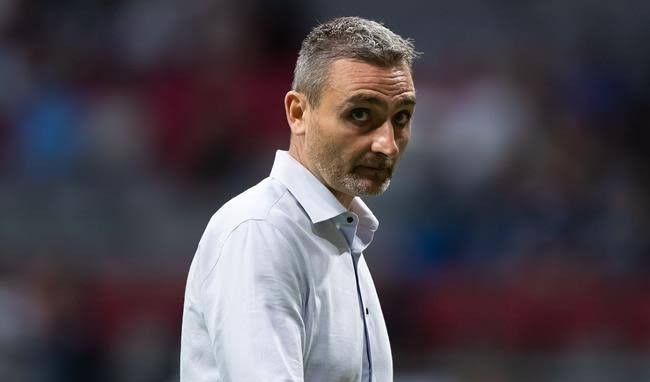
Vanni Sartini Discusses Racism at Vancouver Whitecaps FC
Vanni Sartini, the head coach of Vancouver Whitecaps FC, has made headlines for his candid conversations about racism within the world of soccer. As the leader of a team that represents one of Canada’s most diverse cities, Sartini has emphasized the importance of confronting systemic discrimination and fostering inclusivity both on and off the field.
A Personal Commitment to Addressing Racism
Sartini, an Italian-born coach who has been with the Whitecaps since 2020, has used his platform to speak out against racism in soccer, a sport historically plagued by discriminatory behavior. In interviews and press conferences, Sartini has highlighted the need for both cultural and structural change within the sport to combat racial discrimination effectively.
“Racism is an issue that we need to address at every level of the game,” Sartini said. “It’s not just about the players, but also about how clubs, leagues, and communities create an environment that is welcoming for everyone, regardless of their background.”
His statement underscores the crucial role that soccer organizations must play in eradicating racism. While players themselves can often be the targets of racial abuse—whether from fans in the stands or through social media—Sartini believes that the responsibility extends beyond them. It is imperative, he argues, for leadership in the sport to actively challenge and dismantle systems that allow racism to persist.
The Whitecaps FC’s Stance on Racism
Under Sartini’s leadership, the Vancouver Whitecaps FC have taken proactive steps to create a more inclusive atmosphere. The club has long been known for its commitment to diversity, with players of various ethnic backgrounds representing the team. In addition to cultivating a culture of inclusivity, the Whitecaps have publicly supported initiatives that encourage racial equality both locally and globally.
However, Sartini has acknowledged that despite these efforts, the fight against racism is ongoing and requires constant vigilance. He has pointed out the importance of educating players, staff, and fans alike on the issue of racism, ensuring that all members of the club understand their role in fostering a respectful environment.
“It’s not just about making statements,” Sartini said. “It’s about taking action every single day to create change. Our actions have to match our words, and that’s something we constantly remind ourselves of.”
The Whitecaps have supported campaigns like #NoToRacism and collaborated with local organizations to combat racism in Vancouver and in the soccer community. These efforts include providing educational resources for players, advocating for social justice, and partnering with community leaders to build bridges between the soccer world and marginalized groups.
Racism in Soccer: A Global Issue
Sartini’s remarks come at a time when racism in soccer is being discussed more openly than ever before. High-profile incidents, both on the field and in the stands, have highlighted the prevalence of racist abuse directed at players—particularly players of color. The global soccer community has been forced to grapple with these incidents, and calls for stronger action from governing bodies like FIFA, national federations, and clubs have grown louder.
For Sartini, addressing racism is not just a local issue but a global one. He has used his position to call for greater accountability and for systemic changes within soccer organizations worldwide. Sartini advocates for policies that punish racist behavior more severely and calls on fans to hold each other accountable for creating a toxic, exclusionary environment.
“We have to treat racism as a serious issue, not something that we just talk about in interviews but something that is reflected in the way the sport is governed and in the way we act as a community,” Sartini explained.
The Role of Coaches in Combating Racism
As a coach, Sartini recognizes the influence he has in shaping the attitudes and behaviors of his players. He sees his role as one that goes beyond tactical training and matchday strategy. Coaches, he believes, must act as mentors who help mold the character of their athletes, guiding them to understand the broader issues affecting society and the sport they love.
In his discussions on racism, Sartini has highlighted the importance of creating a team culture where all players feel valued, regardless of their race, ethnicity, or background. For him, this begins with fostering open conversations about diversity and inclusivity in the locker room, making sure players are educated on the impact of their words and actions, both on and off the field.
“Soccer is a universal language, and it should be a space where we can bring people together,” Sartini said. “As a coach, I want to make sure that my players are not just great athletes, but also good people who stand up against injustice wherever they see it.”
Moving Forward: Building an Inclusive Future
The fight against racism in soccer is far from over, but with figures like Vanni Sartini leading the charge, there is hope for progress. His commitment to inclusion, both for his players and fans, sets a positive example for other coaches and teams to follow.
As Sartini has said, it’s not enough to simply talk about the issue of racism—it requires continuous effort and systemic change. In Vancouver, the Whitecaps are showing that it is possible to make a difference, both through action and by fostering a culture of respect and inclusivity.
For the Whitecaps and their head coach, the battle against racism is a long-term commitment—one that will require constant vigilance, open dialogue, and a collective determination to build a better, more inclusive soccer world for all.
Be the first to comment